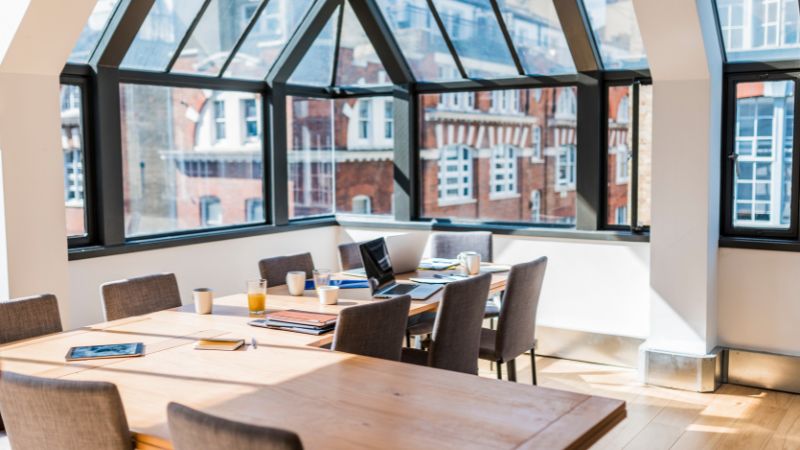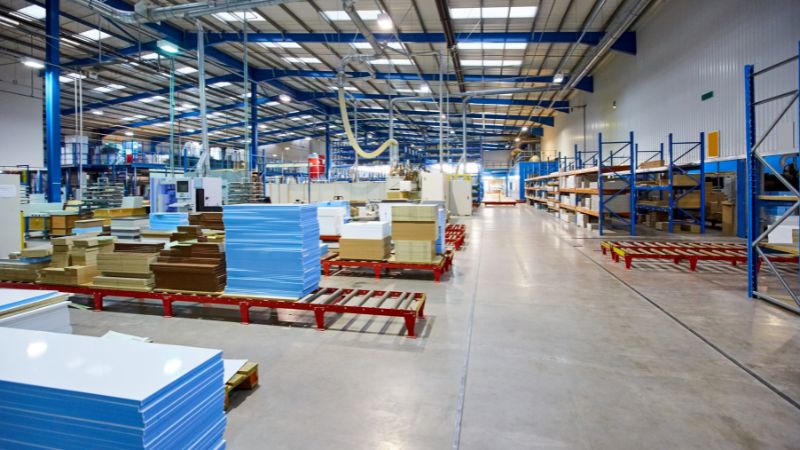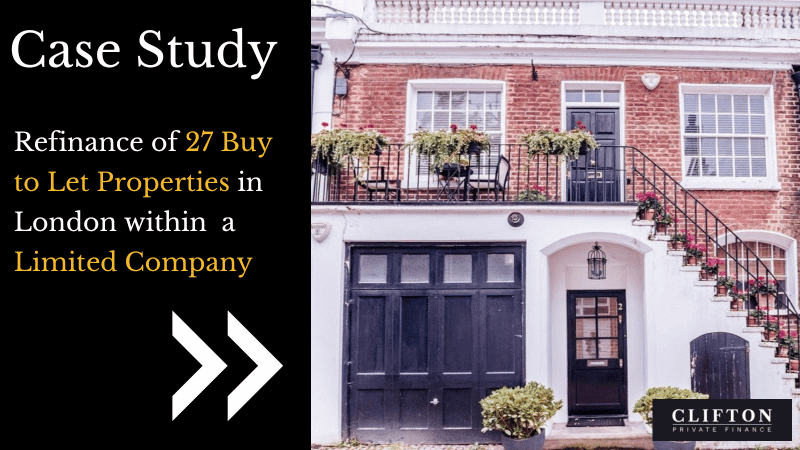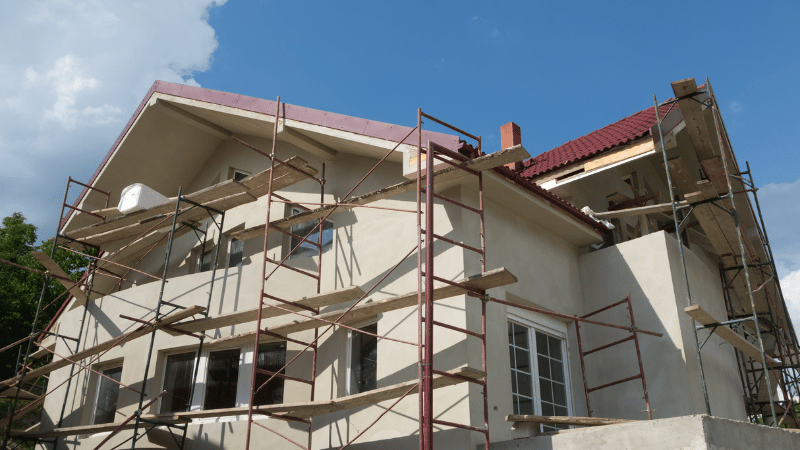Categories
Buying Commercial Property | Everything You Need To Know

Commercial property investment in the UK, whether for direct use by your business or as an investment to secure tenants, is a stable and often profitable venture.
Understanding the landscape for commercial property across the country requires some time and research - so, we’ve written this guide to help you learn exactly how to buy commercial property in the UK and what you need to know about the process.
Contents
2 Reasons To Buy a Commercial Property
What is a Commercial Property?
The Classes of Commercial Property
Location, Location, Location
The Costs of Commercial Property Ownership
5 Ways to Finance a Commercial Property
How We Can Help

2 Reasons To Buy a Commercial Property
There are two primary reasons to buy rather than lease a property:
- to use for your business
- or as a letting or resell investment
Let's explore both.
Purchasing a Commercial Property for Primary Business Use
The advantages and disadvantages of owning your business property rather than renting it are fairly clear and simple to understand.
On the one hand, leasing offers a simpler transaction, allowing you to move in quickly and concentrate on running your business rather than the management of a building. You don't have to invest significant capital as a deposit, and the ongoing maintenance and property value concerns are less affecting.
Of course, owning the property provides you with a significant investment for the future, provides you with full control of the property and gives you the option to turn the property into a profit making asset in the future.
This is not always the case, however, with many new businesses considering a property purchase as part of their initial business plan, and similarly, a significant number of well-established businesses preferring to be out of the property market.
One perceived disadvantage of commercial property leasing is that of flexibility, with the notion that a leased property cannot be altered or reconfigured to use.
However, this is usually untrue, with the property owner more than happy to have their tenants make significant improvements and changes to the building while they are using it. Of course, this does mean that often tenant businesses are ploughing their own capital into a property for the long-term benefit of the landlord.
Indeed, this latter consideration is often the drive for many businesses to consider property ownership.

Buying a Commercial Building as a Business Investment
As is increasingly common in the residential property sector, there is a growing appetite for buy-to-let commercial property investments, with many businesses looking to become commercial property landlords or undertake ‘fix and flip’ projects to gain significant returns on property purchases.
Related: How to create a buy to let business
Though in theory, these proposals are similar to those in the residential market, commercial property is a riskier investment, with the potential for higher profits alongside more complex rental and resale markets. Research and due diligence are essential for successful commercial property investment.

What is a Commercial Property?
Property in the UK comes in three main categories:
- Residential - property that someone would live in, such as a house or flat.
- Commercial - property that a business is run from, such as an office or warehouse.
- Mixed-use - property that is a mixture of residential and commercial, such as a shop with a flat above it or a working farm with farmhouse.
When you purchase a commercial property, you need a commercial mortgage. Similarly, to purchase residential property, you use a residential mortgage, while a mixed-use mortgage is necessary to buy mixed-use buildings.
It is worth noting that despite being businesses, companies that purchase and rent out residential buildings as landlords do not use commercial mortgages to buy their investments, but use multiple residential buy-to-let mortgages and portfolio mortgages designed to purchase multiple residential properties under a single mortgage umbrella.
Related: Business Finance Success Down to AI & Technology
The Classes of Commercial Property
In the UK, all commercial property is given a use class to determine its legal usage.
When you purchase a commercial property, it is essential that you buy the property that fits your company need - a warehouse cannot be used as an office, and a pub is not a factory.
There are five main types of commercial property, each of which is split into further specific classes:
- Offices - buildings used for professional and administrative purposes
- Retail - shops, supermarkets, and shopping centres
- Industrial - warehouses and factories
- Leisure - restaurants, cafés, pubs, hotels, sports and game facilities
- Healthcare - hospitals, nursing homes, and specialist clinics
The Reasoning Behind Commercial Property Use Class
We often hear of grievances regarding the use class of a commercial property, with prospective buyers keen to use office space as a shop, or convert a warehouse into a restaurant. Often they expect planning permission to be granted without problem and are surprised when this doesn’t happen.
For example, adding another late-night pub or club in a residential area may have significant consequences regarding local resident happiness as well as property value; while factory placement can have considerable needs regarding access and waste management.
When considering your location for your business, it is important that you understand the implications that you will have on the local area as much as you consider the area’s impact on your business.

Location, Location, Location
It is an oft-used (and overused) phrase, but “location, location, location” is always repeated because it is important and has several notable consequences for your business.
When considering buying a commercial property, location can be of greater importance than any other factor.
It affects:
- The cost of your property
- The success of your mortgage application
- The use class of your building
- Footfall and custom
- Parking and public transport access
- Employee morale
- Company culture
- Local and regional client base
- Access to suppliers
- Utility and waste management
- The future value of your property as an asset
- Your lifestyle as a business owner
- And more…
Selecting the wrong location for your commercial property can be a devastating and extremely costly mistake that can have an impact on your business growth for years.
It is well worth seeking professional advice regarding the location and researching any factors that are of specific importance to your company.
The Costs of Commercial Property Ownership
It is important to consider the complete range of costs to your business in both purchasing and maintaining your commercial property.
While a commercial property offers an incredible investment opportunity, it also represents an ongoing cost and responsibility in its upkeep.
Costs to Purchase a Commercial Building
The initial costs to buy a commercial property will come from your business capital.
The Deposit
When looking to a commercial mortgage, which is the primary option for funding a commercial property, the deposit is the largest direct capital investment. You should expect to need as much as 25% of the property price as a deposit - while there are multiple funding alternatives discussed later, this is a good ‘rule of thumb’ on which to base your early planning.
Stamp Duty Land Tax
Stamp Duty Land Tax (SDLT, or Stamp Duty) in England and Northern Ireland, the Land and Buildings Transaction Tax (LBTT) in Scotland, and the Land Transaction Tax (LTT) in Wales are taxes that are due on the purchase of a building.
VAT
While commercial property sale is generally exempt from VAT, sellers have an option to include 20% VAT on the sale or lease of their property.
Related: VAT Loans
Legal and Administrative Fees
You will require the services of a conveyancer and a surveyor during your property purchase and should plan with these additional service costs in mind.
Financing Fees
Mortgage arrangement and other funding options will incur additional fees.
Advice
Undertaking a commercial property purchase without specialist advice is possible but inadvisable. Many professionals, from commercial estate agents to financial advisors, will be available to you to smooth the process, ensure you are making the right business decisions, and help minimise costs and maximise investment.
Factoring in their services is another part of the overall cost projection.

Costs to Move In
Moving in costs are a secondary strain on your business capital, however many of these costs can be offset through the use of asset finance, such as hire purchase or leasing options. Speak to us at Clifton Private Finance to discuss your asset finance options with our specialist team.
Refurbishment, Infrastructure, and Decoration
Your commercial property may be perfectly configured and ready to go, with freshly painted walls and a lovely carpet throughout - or it may not be! There are likely to be costs associated with getting the building the way you want it to be, whether that be adding partition walls, installing cabling infrastructure, or simply painting the walls to match your corporate feel.
Make sure you have appropriate estimates from contractors to add this cost to your planning.
Furniture and Fittings
It is rare that a purchased building comes with appropriate furniture and fittings. You may need to invest in a range of office furniture and related assets, from desks through to kitchen equipment.
Equipment
Like furniture, you may need to invest in additional equipment at this stage to run the business. This can range from new computers for desks to specialised factory machinery. Again, equipment finance can be swiftly put in place to avoid a burden on remaining capital.
Moving Services
In addition to the new furnishings and equipment, you will want to bring your existing assets with you. Moving your business may require specialist movers with the experience needed to understand how machinery and equipment must be transported - this can incur additional costs.
Set Up
Getting the building business ready can involve additional specialist services, from IT infrastructure engineers for WiFi or comms, through to machine specialists to configure high-spec equipment in-situ. Plan for these additional services to ensure they are able to help you transition smoothly to your new property.
Ongoing Costs
The ongoing costs of running your building will affect your business cash flow rather than be an early capital expenditure. There are many financing options available to help you with your business cash flow finance - speak to us at Clifton Private Finance to get essential cash flow advice and an overview of the products available.
Insurance
Commercial building insurance, as well as the relevant insurance for your other assets and those associated with your employee and customer health and safety must all be put in place.
Repairs and Maintenance
Buildings need continued maintenance as nothing lasts forever. Consider strategic planning for maintenance that includes:
- A specialist ongoing building inspection plan
- Regular roof maintenance and repair
- Heating and air conditioning maintenance
- Plumbing
- External walls and cladding
- Electrical and IT infrastructure
- Walls and floors
- Regular redecoration
Ongoing Services
These may include:
- Cleaning services
- Security
- Specialist waste management
- IT support
- Parking
Business Rates and Local Authority Charges
Like council tax for domestic properties, business rates are charged by the local council as a tax on commercial property. You may also be liable for additional local authority charges, such as those for waste collection.
Utility Bills
Running your building will mean utility bills for electric, water, gas (if relevant) and communications/internet.

5 Ways to Finance a Commercial Property
There are multiple options for funding your commercial property purchase.
At Clifton PF, we work with a wide range of UK finance providers, encompassing banks, challenger banks, peer-to-peer lenders and other capital investors to give our clients the greatest chance of successfully financing a commercial property.
Our specialist debt advisory team are also on-board to work diligently for clients looking to make a major investment into the real estate arena.
That experience makes us perfectly placed to now present a range of the funding choices available to businesses looking to buy a property either for direct use or investment.

1 - Capital Spend
The first way to fund a commercial property purchase is to pay for it outright using existing business capital.
This is, of course, limited to businesses with access to the required capital but does present some advantages:
- Cost-effectiveness - Without any debt utilised to buy the property, there is no interest accrued and the overall cost of the property is lowered.
- Immediacy - Businesses able to directly access the funds needed to purchase a property without delay can take advantage of opportunities that others may miss.
- Purchasing Power - Having the cash immediately available gives a significant measure of leverage when making deals, as buyers are often willing to sacrifice some profit in exchange for a rapid transaction. However, just because you can use existing capital to purchase a property doesn’t mean you should.
Some reasons to take on commercial property financing even if you don’t necessarily need to include:
- Business Growth - Using a large amount of capital to buy a property will take those funds away from other aspects of the business, such as investment in people, marketing, or research.
- Security - If the capital required for the building is a large portion of available capital, you will lose the financial security that the existing capital brings.
- Loss of Opportunity - With the capital tied up in the property purchase, other business opportunities that arise may be out of reach.
- Breadth of Funding Options - With the power that the capital offers, the range of funding options available to you will be great, enabling you to select the best of all possible property purchasing solutions.
- Entering the Funding Landscape - Buying a property through commercial finance will widen your network of financial partners and relationships, opening the door to future opportunities for finance and business growth that may not be obvious.
Determining whether to purchase a property with existing capital or consider a financing option will be a complex decision. We recommend discussing your options with a professional advisor.

2 - Commercial Mortgages
By far the most popular product for purchasing commercial property is the commercial mortgage. With a vast range of products available, commercial mortgages provide businesses with the funding they need to buy buildings or land for both investment (commercial investment mortgages) and business use (owner-occupier mortgages).
You will need to provide a deposit and make regular monthly payments for the full term.
Remember that a mortgage will take time to secure and put in place, as the lender will undertake due diligence on both the property (to ensure it is a viable asset to secure the loan) and your business (to ascertain risk on the loan).

3 - Bridging Loan
A commercial property bridging loan is a short-term loan that is designed to provide finance to purchase a property at short notice, with an exit strategy in place that either pays off or refinances the bridging loan within a few months.
Bridging loans are extremely rapid to obtain, making them an excellent option to take advantage of an opportunity that may slip away unless decisions are made quickly.
As the bridging loan will have a far larger interest rate than the commercial mortgage, it is desirable to refinance as soon as possible.
Bridging loans can be used to purchase property at auction, pay for building renovations, or to convert a property use class prior to obtaining the appropriate mortgage.

4 - Auction Financing
Commercial auction financing is a subset of bridging loan developed specifically to provide businesses with the buying power required to purchase property at auction.
Bear in mind that the LTV (loan-to-value) of auction financing will never exceed 90%, meaning at least 10% of the property price must be funded using existing business capital.

5 - External Investment Funding
One final way to finance a commercial property purchase is to obtain money from outside investors for equity in the business.
Investment financing has the advantage that it does not need to be repaid, but instead is obtained through the sale of business shares.
Businesses looking to expand by purchasing their own property may find a number of angel investors or venture capitalists who are interested in helping fund the company in this way, especially considering the additional security that a fully-owned property will provide.
How to Buy Commercial Property with Clifton Private Finance
Clifton Private Finance provide comprehensive professional advice and funding options for businesses looking to purchase property across the UK and Europe.
Our teams of expert advisors have nurtured business relationships with the full marketplace of banks and other lenders so we can offer our clients the most suitable products and best deals available, tailored to fit every specific business need.
Speak with one of our dedicated team today and see how working with Clifton Private Finance can enable your business to buy the ideal commercial property.











